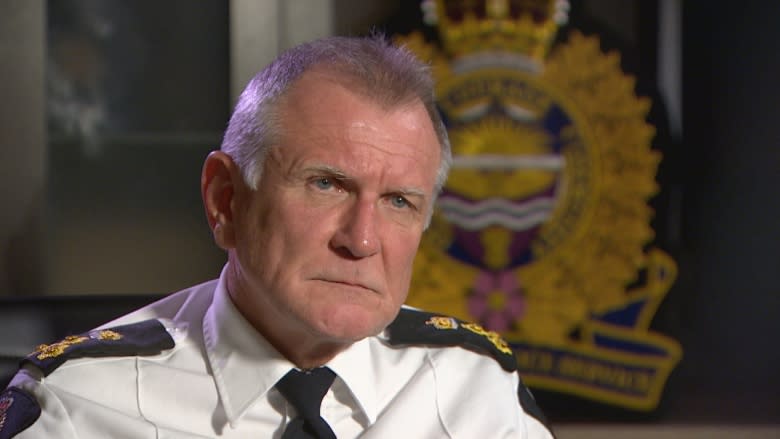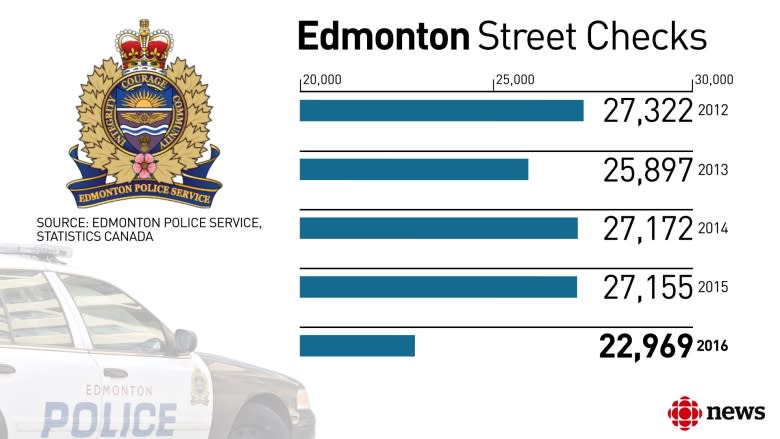'I don't want to be hassled': Some Edmonton police no longer conducting street checks, says chief
Some Edmonton police officers are resisting doing street checks because the practise is controversial and they fear being investigated, says police Chief Rod Knecht.
He made the comments Thursday to partially explain the dramatic drop in the number of street checks conducted by Edmonton police — from 27,155 in 2015 to 15,909 in 2017.
Knecht, who has been a staunch defender of what critics call "carding," said some officers have stopped doing random street checks altogether.
"We have some officers that just aren't doing street checks anymore, that they've sort of stepped back and said 'I don't want to be investigated, I don't want to be hassled, I'm going to get in trouble, so I'm just not going to do these street checks anymore,' " Knecht said Thursday,
Those police officers are encouraged not to stop the practice but to do it in a legitimate, open and engaging way, the chief said.
"We don't want you to stop doing that because — how are we supposed to prevent crime if you're not interacting with the community?" he asked.
Other reasons cited for the decline in street checks were better education of frontline officers — who may have been incorrectly classifying stops such as jay walking or traffic stops — as well as response to community feedback.
"I think we're doing it better," said Knecht. "As a consequence of the feedback we got from the community we're changing the way we street check a little bit."
Knecht spoke about street checks outside a closed-door meeting where the police commission was given a first glimpse of a report reviewing the street check policy.
The review came after a series of investigative stories by CBC News, beginning in 2015. Data obtained through a freedom of information request last year showed black and Indigenous Edmontonians were stopped much more often than white people. Some advocates and lawyers have criticized the practise as racial profiling.
The review is expected to be released publicly toward the end of this month.
But Knecht said the service has already made changes to its internal policy based on "tremendous input" from black and Indigenous members of his advisory councils.
"We changed our policy specific to what they said, they found was problematic or an issue for them," Knecht told reporters. "And actually we came to total and complete resolution where everybody was totally happy, once we talked about it, once we understood what the police are doing."



